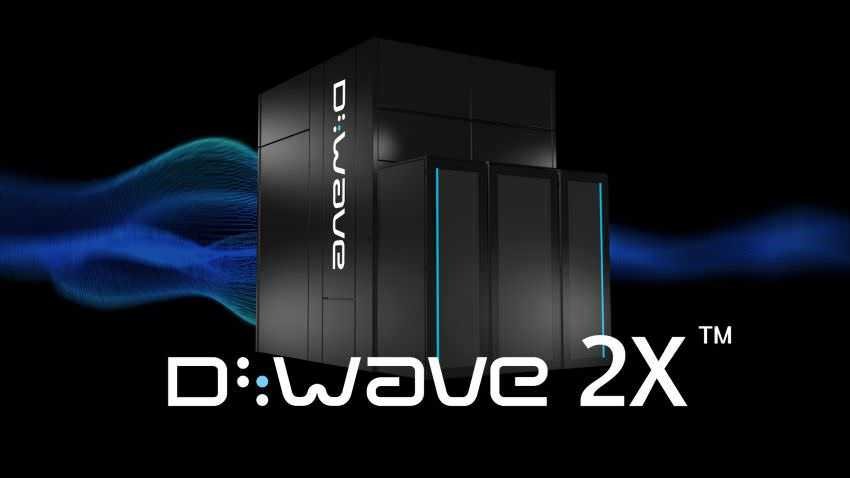What will happen to Bitcoin in the event of the release of quantum systems? Quantum computers, when they start circulating "widely", will not be used in everyday applications such as writing something in Office or playing a game (although many would like to).
Instead, they will help with data processing tasks and solving problems that require very strong computing power. However, while most of us have positive intentions for these upcoming technologies, there are others who think maliciously.
Quantum computers have an incredible ability to perform multiple calculations simultaneously, unlike conventional computers. For example, modern computers could never crack a 256-bit key by crossing each combination while a quantum computers could achieve this with great ease.
To see the difference in speed we will quote the quantum computer example D-Wave 2X Google who can solve 100.000.000 algorithms times faster than the most modern computing devices.
This means that the violent attacks (Brute Force) against protocols security they will suddenly have spectacular results, which will cause serious problems in global finance, IT and information as a whole.
So it is not surprising that Bitcoin is also seriously at risk of the arrival of quantum computers.
Bitcoin, as well as other cryptocurrencies, have become very popular for many reasons.
- Cryptosystems provide almost complete autonomy, allowing individuals and businesses to buy goods and services without revealing their identity.
- The system is based on encryption to keep wallets secure so that others can not access other users' Bitcoins.
- Bitcoin is decentralized, which means that there is no Bitcoin bank or a single server that is responsible for the entire system (this could lead to abuse). The Bitcoin system is maintained and supported by all network computers, with all transactions recorded in a public book.
But without encryption, the Bitcoin system would never work, as users would have no confidence in the currency. Therefore, Bitcoin's security through encryption is of paramount importance.
Bitcoin: What happens when quantum computers are released?

Bitcoin wallets use 256-bit encryption, which is the only real defense against digital theft.
But quantum computers could very quickly identify private ones wrenches of a system. This would lead to either the plummeting value of Bitcoin or the abandonment of Bitcoins altogether, as a very important ingredient of success, trust, would be lost.
In addition, the value of Bitcoin mining (Bitcoin mining) will become asignaland it will lead to a sudden overload of Bitcoins in the market or better said, in circulation. This increase in the availability of Bitcoin would cause hyperinflation (saturation) and thus a fall in the price of Bitcoin.
Bitcoin, however, is not the only victim of such a breach of security. All other cryptic frequencies, such as electronic trading systems, banks, financial institutions, websites, connection systems, governments, and even the encryption of each file would be at stake.
Quantum computers are a threat to the use of conventional security protocols based on modern computers that are too slow to crack keys larger than 128 bits. But what about a different type of security protocol that is not designed for conventional systems?
What about it quantum cryptography;
In quantum physics, there is a phenomenon that is truly amazing: quantum superposition. Simply put, if the state of a particle is not observed and is not known, it is said to be superimposed (that is, the rotation of an electron in all possible states). Once the particle is observed, the coating is lost and the particle assumes a specific condition. Then there is a second phenomenon called quantum entanglement, where two particles are involved so that if the state of one particle is known then the state of the other particle can be deduced.
These two phenomena, when combined, can be used to transmit quantum states from one user to another. Imagine that this information could be a key to be used to decrypt a message using conventional systems.
In classical computing, sending a key over a network is harmless as everyone can watch, acquire the key, and then decipher the information being transferred between the two users.
But in quantum cryptography, the key sent "uncovered" is in quantum state. If someone reads the key, the overlay state will be lost and the original recipient will detect the overlay loss and reject the key.
This key distribution method is called Quantum Key Distribution. Today, there are cryptographers working on the subject and developing cryptographic methods to combat quantum computing.
For example, Llew Claasen, executive director of the Bitcoin Foundation, said that solutions are currently in place to keep the system immune from quantum technologies.
However, as the Bitcoin system is decentralized, the entire system should agree to any new change.
This may prove far more difficult than the design of the new system itself.





